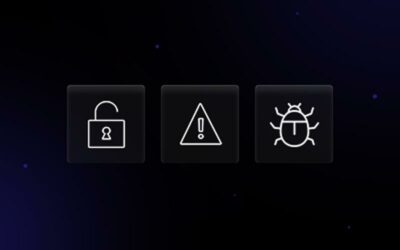Convenience is the reason why most people rely on their mobile devices. Your phone or tablet can be used to complete almost all your daily tasks, including mobile banking, as well as storing personal data, pictures, and even documents. But, this convenience also entails many problems, particularly on security and data protection for your mobile phones and other similar devices.
To protect yourself from hackers and unscrupulous individuals, you ought to be vigilant and prudent about how you use your gadgets. More than the cost of having your phone or iPad repaired, you must be aware of the problems that may arise if your device gets hacked.
Here are seven tips to keep personal data secure on mobile devices.
GO TO A TRUSTED REPAIR SHOP
If you damage your mobile device, don’t panic. Find the nearest reputable repair shop with solid reviews. Make sure they’ve been in the business of repairing gadgets for at least five years. You want a shop that offers no less than one year warranty for their service.
If you entrust your device to a fly-by-night store, even for just an iPad screen repair, you risk having your data, passwords, and identity being hacked and compromised. Using a shop simply because they offer cheap services may not be the best decision when it comes to gadget repair. You may be saving on upfront costs, but becoming a victim of identity theft or having your banking details hacked isn’t worth the money you save with a fraudulent repair shop.
LOG OUT OF YOUR APPS
Most people don’t want to miss notifications or the latest buzz from social media. For some, being permanently logged in to their social media or mobile banking apps makes things more convenient, especially when shopping online.
However, to help protect your identity and data, it may be best to log out of your accounts when you’re not using such apps and, most especially, when you’re outside your home. This way, even if you misplace your device, you won’t be too worried about your bank accounts getting hacked and wiped out.
REFRAIN FROM USING PUBLIC WI-FI
Many security experts caution people against accessing public Wi-Fi because you can never be too sure about its security. Many hackers offer free Wi-Fi to lure their victims. Cybercriminals may install malware into your device, access your bank account and other financial-related apps, or even steal your identity to apply for loans or perform other criminal activities in your name.
Just imagine if criminals used your identity to scam other people or your friends? Even if you can prove that you’re not responsible for the illegal activities, you’re still bound to experience significant inconvenience if your identity is compromised.
ALWAYS UPDATE YOUR OS
Even if phone and tablet manufacturers painstakingly create measures to keep mobile devices secure, criminals will always find a loophole or a backdoor to get into operating systems. So, to protect the users, device manufacturers frequently offer updates to patch up the flaws in their software. It’s your responsibility to ensure that your OS is updated to ensure your mobile devices aren’t vulnerable to cyberattacks.
BE CHOOSY WITH DOWNLOADS
You’re probably aware that downloading attachments from unknown senders in your inbox is a big no-no because it can infect your system with a virus, trojan horse, phishing malware, and other similar files. But, aside from email, you should also be careful with the apps you download to your mobile device. Always download from official app stores and double-check the reputation and credibility of the app developer. A lot of cybercriminals use heap spraying technique to gain access to your device, so be very careful with the developers you trust.
USE STRONG PASSWORDS
Many people use weak passwords, like 1234 or their birth dates, to make them easier to remember. If your password is that obvious, it would also be easy for other people to break it. To make it harder for hackers to guess your password, make it longer than eight characters, and use letters, numbers, and special characters. Also, avoid using one password for all your apps. If you’re serious about your security, you may also change your passwords regularly for all your apps.
KEEP YOUR MOBILE DEVICE LOCKED
The first security measure that many people seem to disregard is locking their phones and other mobile devices. Please don’t make it easy for anyone to access your gadgets. Always keep it locked.
Set your mobile device to lock when not in use. By doing so, whoever steals your device won’t be able to sell it, access your personal information, or use your apps. Also, if you remember setting a password, it will take the hacker some time to break your device. It means you have a better chance of blocking your mobile device, calling your bank, and reporting your stolen device to the authorities.
BOTTOM LINE
Don’t compromise your personal security in exchange for convenience or a few dollars of repair cost savings. When it comes to mobile devices, personal data security should always be on your priority list.



